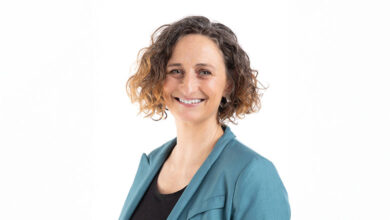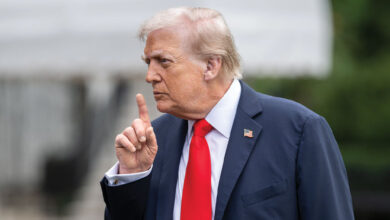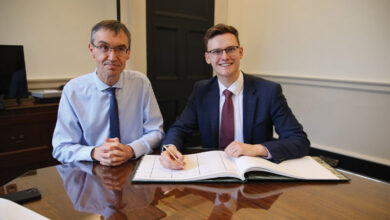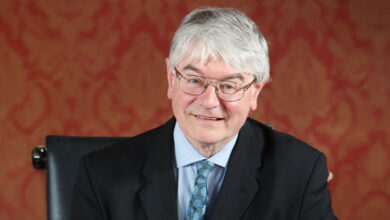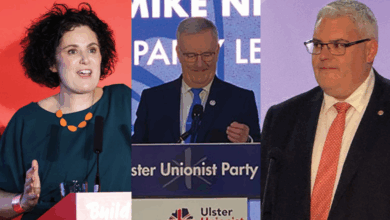State of the Union 2021
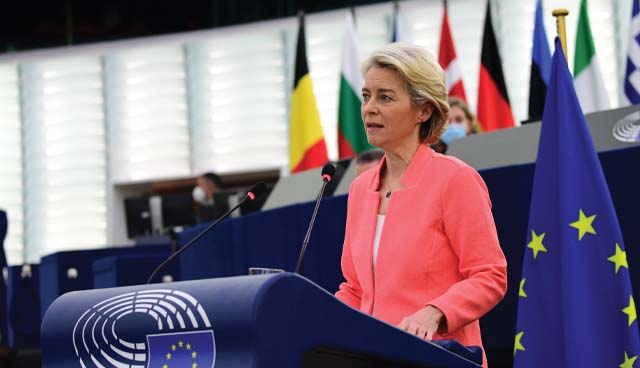
In September 2021, EU Commission President Ursula von der Leyen delivered her second State of the Union address to MEPs in Strasbourg with a major focus on recovery, climate, and defence.
Delivered in a much more confident tone than her first State of the Union address, when Covid-19 gripped countries across the globe and a successful vaccine approval was a distant hope, EU Commission President Ursula von der Leyen understandably chose to highlight the EU’s major achievements of the past 12 months, namely the vaccination campaign and the €750 billion NextGenerationEU recovery fund, in her second address.
However, speaking in Strasbourg to MEPs, the President stopped short of being triumphant and instead warned “corona times are not over”, stressing that “next year will be yet another test of character”.
While Europe’s success of fully vaccinating over 70 per cent of adults was celebrated, the problematic start to vaccination rollout was not mentioned, instead the President chose to flag Europe’s delivery of more than 700 million doses to more than 130 countries in the rest of the world.
And it was in relation to global vaccination where the President made the Commission’s first major pledge of the address. Outlining the speeding up of global vaccination as “our first and most urgent priority”, von der Leyen announced a new donation of a further 200 million doses by the middle of 2022 to the 250 million doses already committed to sharing following investment to ramp up mRNA production capacity in Africa.
Pandemic of the unvaccinated
The President did address growing concerns around divergence in vaccination rates across member states, pleading with MEPs to “do everything possible to ensure that this does not turn into a pandemic of the unvaccinated”.
“We need to keep up the momentum, and Europe is ready. We have 1.8 billion additional doses secured. This is enough for us and our neighbourhood when booster shots are needed,” she said.
On strengthening future preparedness, the President proposed the establishment of the European Health Emergency preparedness and Response (HERA) authority, with an investment of €50 billion by 2027, which has been touted as the foundation of a European Health Union.
Economy
Von der Leyen suggests that the EU has learned from past economic shocks, highlighting that Eurozone GDP took eight years to return to pre-crisis levels after the financial crisis, she expects the economic response from this crisis to be much faster.
“This time we expect 19 countries to be at pre-pandemic levels this year with the rest following next,” she says, boasting that growth in the euro area outpaced both the US and China in the quarter prior to her September 2021 address.
However, urging caution, she adds: “This is only the beginning. And the lessons from the financial crisis should serve as a cautionary tale. At that time, Europe declared victory too soon and we paid the price for that. And we will not repeat the same mistake.”
“This is not just a matter of our competitiveness. This is also a matter of tech sovereignty.”
The President says that the single market, which will soon celebrate its 30th year, is the driver of good jobs and competitiveness and pinpoints digital as the “make-or-break” issue.
“We have to double down to shape our digital transformation according to our own rules and values,” stated von der Leyen, before going on to highlight that Europe’s share of semi-conductors, across the entire value chain, from design to manufacturing capacity, has shrunk.
The President called for a focus on a shortage of semiconductors and the current dependence on manufacturing in Asia.
“This is not just a matter of our competitiveness. This is also a matter of tech sovereignty. So, let’s put all of our focus on it,” she says, outlining the upcoming presentation of a new European Chips Act to create a state-of-the-art European chip ecosystem, ensuring security of supply and develop new markets for “ground-breaking European tech”.
Climate
Progress on the climate crisis will undoubtedly determine von der Leyen’s legacy as EU Commission President. As the President who has already overseen the unveiling of the European Green Deal, the European Climate Law and the Fit for 55 package, the climate crisis was always going to be a major focus of her address.
Perhaps more low key than her first State of the Union address in 2020, when von der Leyen set out the 55 per cent emission reduction by 2030 target, the Commission President did pledge to double its external funding for biodiversity, in particular for the most vulnerable countries.
The President’s focus appeared to be more on the global rather than internal challenges and she stressed the need for international cooperation in relation to the climate crisis, pointing to November’s COP26 in Glasgow as a “moment of truth for the global community”.
“Major economies – from the US to Japan – have set ambitions for climate neutrality in 2050 or shortly after. These need now to be backed up by concrete plans in time for Glasgow. Because current commitments for 2030 will not keep global warming to 1.5°C within reach,” she said.
Emphasising a responsibility of the major economies to the least developed and most vulnerable countries, the President pledged an additional €4 billion to 2027 on top of Europe’s $25 billion current annual investment. However, in doing do, she stressed expectations that partners, particularly the US, step up their investments.
“Closing the climate finance gap together, the US and the EU, would be a strong signal for global climate leadership. It is time to deliver.”
Defence
The former German defence minister used the fall of Afghanistan to the Taliban and global security challenges as the backdrop to an announcement of ambitions to develop a European defence union. Stating that a new EU-NATO joint declaration on defence would be delivered before the end of 2021.
“We are connected to the world by narrow straits, stormy seas and vast land borders. Because of that geography, Europe knows better than anyone that if you don’t deal in time with the crisis abroad, the crisis comes to you,” she said.
“The good news is that over the past years, we have started to develop a European defence ecosystem. But what we need is the European Defence Union.”
ALMA
One internal area where von der Leyen did focus was on youth. Discussing the impact on the pandemic on the youth of Europe, the President not only proposed 2022 as the Year of European Youth but announced the launch of the ALMA programme. The ERASMUS-like project aims to support young people not in any kind of employment, education, or training to enter the job market through education, vocational training or employment in their home country but also with a work placement in another EU country.

